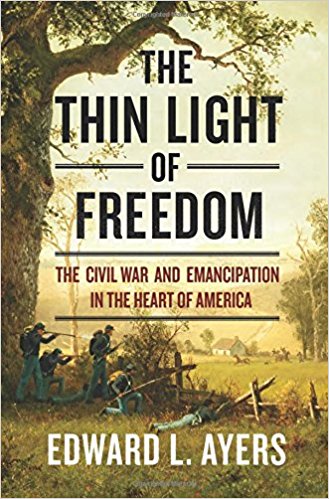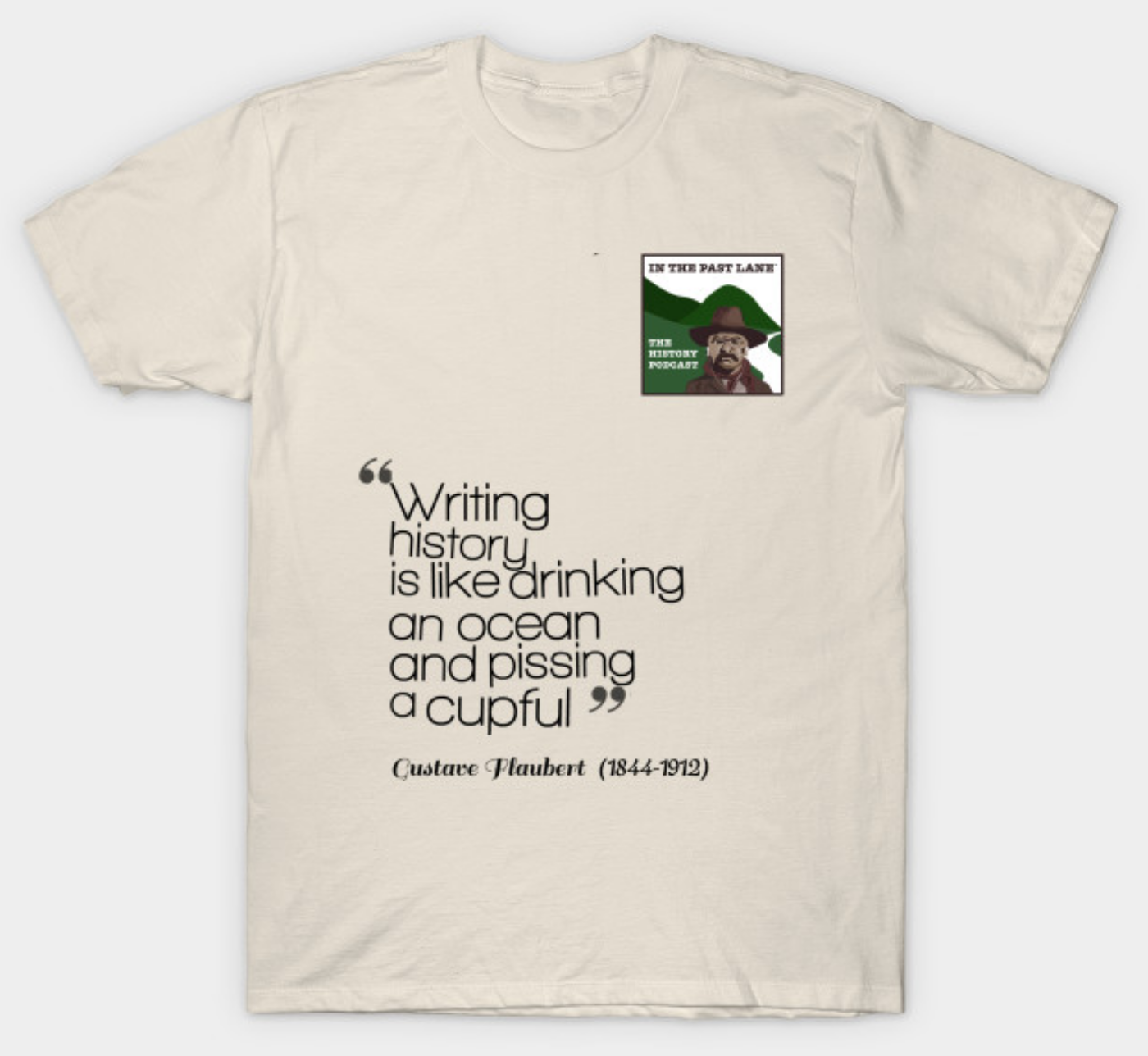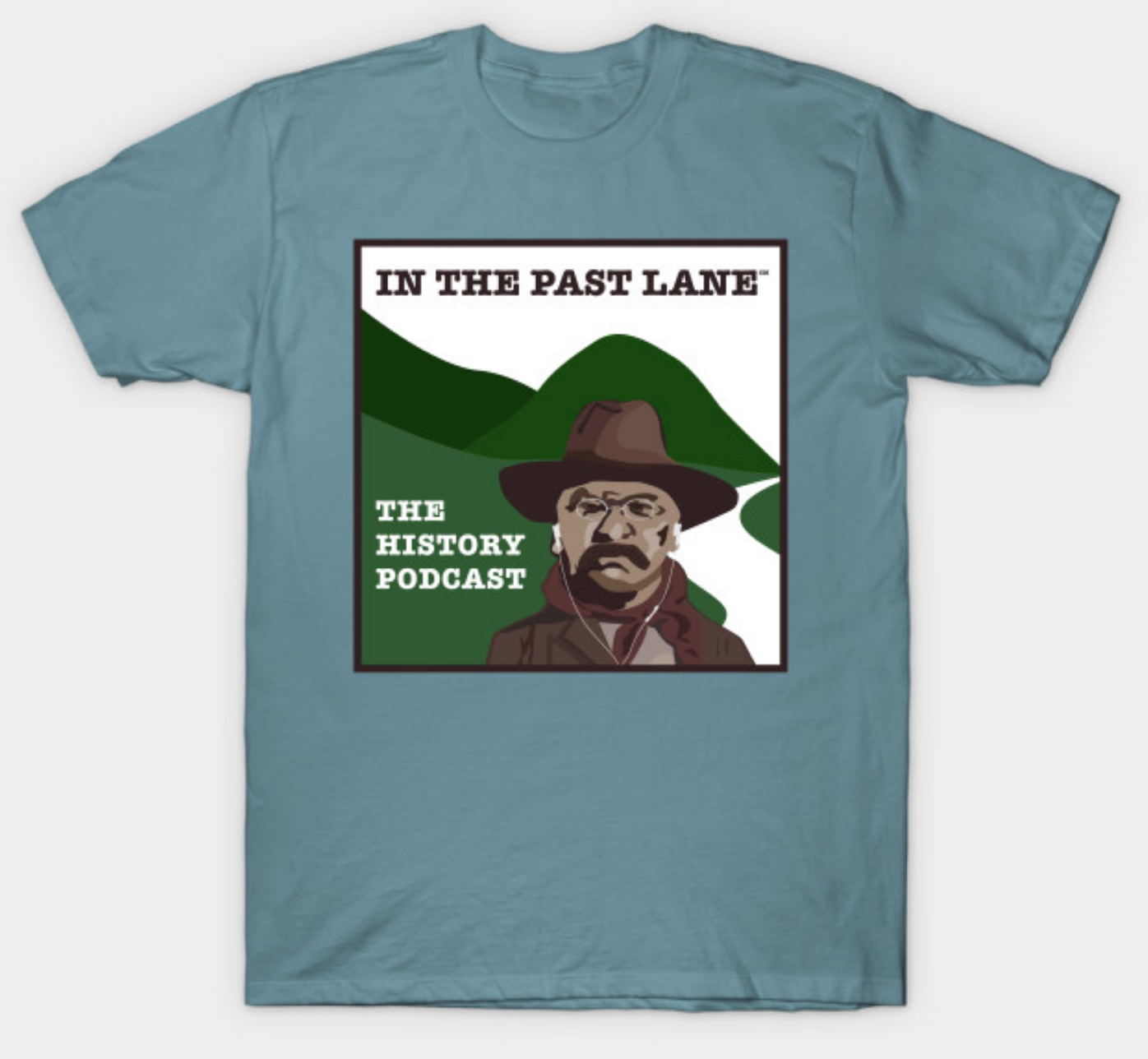 This week at In The Past Lane, the history podcast, we engage with the questions: What was the experience of ordinary people — men and women, white and black, free and enslaved, civilian and soldier, Northerner and Southerner — during the American Civil War? These questions are ones historian Edward L. Ayers has been trying to answer for more than 25 years. Since the mid-1990s, his extraordinary project, the Shadow of the Valley (http://valley.lib.virginia.edu/), has created a vast archive of primary sources drawn from newspapers, diaries, personal letters, and more that are connected to the residents of two counties that straddled the North-South divide during the war and after. And this archive has, in turn, allowed Ayers to produce a masterful, two-volume history of the Civil War and Reconstruction, with a particular focus on the issue of emancipation. In 2004 he published the Bancroft Prize–winning book, In the Presence of Mine Enemies: The Civil War in the Heart of America, 1859-1864. Now in 2018, Ayers is back with volume 2: The Thin Light of Freedom: The Civil War and Emancipation in the Heart of America (W.W. Norton). Like volume 1, it tells the story of the last half of the Civil War and Reconstruction from the perspective of the people who lived through it. It’s a conversation you won’t want to miss. And — as a bonus — Ed also talks about his experience as a co-host of the popular US history podcast, Backstory. So, strike the tents, people – your journey In The Past Lane is about to begin.
This week at In The Past Lane, the history podcast, we engage with the questions: What was the experience of ordinary people — men and women, white and black, free and enslaved, civilian and soldier, Northerner and Southerner — during the American Civil War? These questions are ones historian Edward L. Ayers has been trying to answer for more than 25 years. Since the mid-1990s, his extraordinary project, the Shadow of the Valley (http://valley.lib.virginia.edu/), has created a vast archive of primary sources drawn from newspapers, diaries, personal letters, and more that are connected to the residents of two counties that straddled the North-South divide during the war and after. And this archive has, in turn, allowed Ayers to produce a masterful, two-volume history of the Civil War and Reconstruction, with a particular focus on the issue of emancipation. In 2004 he published the Bancroft Prize–winning book, In the Presence of Mine Enemies: The Civil War in the Heart of America, 1859-1864. Now in 2018, Ayers is back with volume 2: The Thin Light of Freedom: The Civil War and Emancipation in the Heart of America (W.W. Norton). Like volume 1, it tells the story of the last half of the Civil War and Reconstruction from the perspective of the people who lived through it. It’s a conversation you won’t want to miss. And — as a bonus — Ed also talks about his experience as a co-host of the popular US history podcast, Backstory. So, strike the tents, people – your journey In The Past Lane is about to begin.
Check out ITPL Merchandise!
Click HERE
Among the many things discussed in this episode:
 The extraordinary Civil War history project, In the Shadow of the Valley, that has gathered tens of thousands of primary source documents that chronicle the lives of the residents of two counties that straddled the North-South divide during the Civil War and after.
The extraordinary Civil War history project, In the Shadow of the Valley, that has gathered tens of thousands of primary source documents that chronicle the lives of the residents of two counties that straddled the North-South divide during the Civil War and after.
How key military victories in late 1864 helped Abraham Lincoln win re-election in November 1864 and allowed him to continue the Union’s push to final victory.
How a critical mass of Northerners, always a minority, came to embrace both emancipation and full civil rights for African Americans.
How two groups of Americans – Northerners and Southerners – came to embrace as necessary and virtuous the death and destruction wrought by the Civil War.
How African Americans played a decisive role in their emancipation and in achieving full citizenship and rights.
Why Reconstruction was a success when viewed from the successful ways that African Americans achieved and then defended – even in the face of decades of Jim Crow oppression – their right to equality and civil rights.
Recommended reading:
Edward L. Ayers, The Thin Light of Freedom: The Civil War and Emancipation in the Heart of America (W. W. Norton and Company).
Edward L. Ayers, In the Presence of Mine Enemies: The Civil War in the Heart of America, 1859-1864 (2004).
Eric Foner, Reconstruction: America’s Unfinished Revolution, 1863-1877 (1988)
James M. McPherson, Battle Cry of Freedom: The Civil War Era (1988)
Related ITPL podcast episodes:
059 Anne C. Bailey on “The Weeping Time”
044 Richard White on the period of Reconstruction and the Gilded Age
035 The story of Albert Cashier, a transgender soldier who fought for the Union
020 Douglas Edgerton on African American soldiers in the Union Army
004 Manisha Sinha on the history of the abolition movement
Music for This Episode
Jay Graham, ITPL Intro (JayGMusic.com)
Kevin McCleod, “Impact Moderato” (Free Music Archive)
Borrtex, “Perception” (Free Music Archive)
Jon Luc Hefferman, “Winter Trek” (Free Music Archive)
The Bell, “I Am History” (Free Music Archive)
Production Credits
Executive Producer: Lulu Spencer
Associate Producer: Tyler Ferolito
Technical Advisors: Holly Hunt and Jesse Anderson
Podcasting Consultant: Darrell Darnell of Pro Podcast Solutions
Photographer: John Buckingham
Graphic Designer: Maggie Cellucci
Website by: ERI Design
Legal services: Tippecanoe and Tyler Too
Social Media management: The Pony Express
Risk Assessment: Little Big Horn Associates
Growth strategies: 54 40 or Fight
© In The Past Lane, 2018



